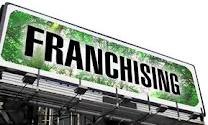A franchise is a right granted to an individual or group to market a company’s goods or services within a certain territory or location. Some examples of today’s popular franchises are McDonald’s, Subway, Domino’s Pizza, and the UPS Store.
Assignment on Franchising
Definition of franchise
A franchise is a right granted to an individual or group to market a company’s goods or services within a certain territory or location. Some examples of today’s popular franchises are McDonald’s, Subway, Domino’s Pizza, and the UPS Store.
There are many different types of franchises. Many people associate only fast food businesses with franchising. In fact, there are over 120 different types of franchise businesses available today, including automotive, cleaning & maintenance, health & fitness, financial services, and pet-related franchises, just to name a few.
Today, franchising is helping thousands of individuals be their own boss and own and operate their own business. Franchising allows entrepreneurs to be in business for themselves, but not by themselves. There is usually a much higher likelihood of success when an individual opens a franchise as opposed to a mom and pop business, since a proven business formula is in place. The products, services, and business operations have already been established.
Tips in Franchise
- Start by setting specific criteria for the kind of franchise you want.
- Look for franchises that are established, with good growth prospects and good reputations.
- Use online search tools to help you target your research.
How To Select a Franchise
Here are some useful tips on how to select a franchise. When selecting a franchise, carefully consider a number of factors, such as the demand for the products or services, likely competition, the franchisor’s background, and the level of support you will receive because like any other investment, purchasing a franchise is a risk. You will do well to consider the following items before selecting a franchise:
Demand: Is there a demand for the franchisor’s products or services in your area? Is the demand seasonal? Is there likely to be a continuing demand for the products or services in the future? Does the product or service generate repeat business?
Competition: What is the level of competition? How many franchised and company-owned outlets does the franchisor have in your area? How many competing companies sell the same or similar products or services?
Ability to Operate the Business: Will you be able to operate your outlet even if the franchisor goes out of business? Will you need the franchisor’s ongoing training, advertising, or other assistance to succeed? Will you have access to the same suppliers?
Name Recognition: A primary reason for purchasing a franchise is the right to associate with the company’s name. The more widely recognized the name, the more likely it will draw customers who know its products or services:
Training and Support: Another reason for purchasing a franchise is to obtain support from the franchisor. What training and ongoing support does the franchisor provide?
Franchisor’s Experience: Many franchisors operate well-established companies with years of experience both in selling goods or services and in managing a franchise system. Carefully consider how long the franchisor has managed a franchise system.
Growth: A growing franchise system increases the franchisor’s name recognition and may enable you to attract customers. Make sure the franchisor has sufficient financial assets and staff to support the franchisees.
In the end, there is no formula for finding the right franchise. It is as much about your instincts as it is about dollars and cents. Of course, you want to shop around for the very best deal and find a franchise that will deliver an excellent return on your investment. But much of finding the right franchise has to do with how you feel about the business and the brand. If you enjoy what you are doing, believe in the brand, and are passionate about the business, you are more likely to succeed.
















